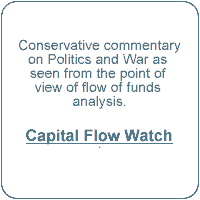 Brazilian Stock Market Bubble of 1971 and Delfim Netto
Brazilian Stock Market Bubble of 1971 and Delfim Netto
Case Study: The Brazilian Stock Market
Decree Law 157 and Finance Minister Delfim Netto
The Bubble of 1971
The Brazilian stock market in the first half of 1971 went through two extraordinary quarters of rapidly increasing prices.
- In just six months, prices rose from about ten times earnings to over thirty times earnings — levels never before seen in the century.
- Prices rose as much as 40% in some months.
 Speculation was rampant in the Boom of 1971
Speculation was rampant in the Boom of 1971There was widespread euphoria, market manipulation, and high times for brokers and investors.
Few understood the forces that were driving this market; the common explanation was simply, 'speculation' and 'good times'.
However, there were verifiable reasons for this unusual boom that had little to do with speculation or the prospects of individual companies.
It all had to do with the flow of funds.
An Unbalanced Flow of Funds
The basis for the market splurge of 1971 was clear enough to those who knew how to follow the flow of funds.
In 1971, even though Brazil had no national flow of funds accounts equivalent to the statistics of the U.S. Federal Reserve, information on critical flows for new issues and net mutual fund sales was available to those who knew where to look.
The bull market was driven by four elemental forces, not generally reported as such in the financial press:
Artificial Demand from Decree-Law 157
In 1967, the authorities, anxious to promote the 'democratization of capital', took steps to encourage companies to go public and citizens to invest in shares.
Advertisement for a '157 Fund'
Among these reforms was a provision that permitted individual taxpayers to pay 10% of the amount due on income tax into special mutual funds that, in turn, invested in shares of public companies. (the so-called D.L. 157 Funds)
This transfer of tax money was done by simply checking a box on one's income tax form, indicating the name of the 157-fund that the taxpayer had chosen.
The government would send money collected from taxpayers to the indicated fund managers to be applied in installments over the next year.
Decree-Law 157 fund administrators were required to invest this tax money in stocks upon receipt.
The schedule for monthly transfers was made public.
Share portfolios were blocked in 157-funds for seven years, but thereafter the money could be withdrawn by the taxpayer along with accumulated dividends and capital gains. Both principal and income were exempt from further taxes.
The Decree Law 157 scheme was an offer that few taxpayers turned down.
However, taxpayers would just as readily have 'invested' in bags of black beans, or any other assets had value at all and if the cost were paid by the government out of tax funds.
The 157 funds had nothing to do with an 'efficient market' since investors had no idea of the value of the funds they were acquiring, other than being certain that this was greater than zero, the cost to them.
Implementation of New Law Held Back Supply
In 1971, Minister of Finance Delfim Netto and Ernane Galvêas, President of the Central Bank, decided to put into effect securities market regulations similar to those of the United States.
However, one drag on the 'Economic Miracle' was the intellectual thinness of the staffs on which senior officials depended.
The Minister of Finance had to oversee many critical tasks. Implementation of the details often did not match the intentions of those in charge.
Obviously, Brazil lacked a cadre of security market regulators.
Since it was not yet on their agenda, the World Bank and USAID did not offer to send experts from the United States (as they did in other markets, a generation later) and the Brazilians, who were never eager consumers of the services of foreign consultants, did not ask.
Poorly implemented rules under Minister Delfim Netto held back the supply of equities.
New laws required issuers to register with the Central Bank before going public, but first, the rules had to be drafted.
Under the Capital Market Law, there was no time limit set for examination of registration statements by the authorities.
The staffs assigned to implement the Capital Market Law were not experts in securities markets (since the Brazilian market had been dormant for over half a century) and there is only so much that can be done by improvision and guesswork.
While they were figuring out what to do, the regulators delayed in establishing rules for the approval of new issues.
While the regulators were deciding how to proceed, new issues were put on hold.
The inevitable result was that a queue for new issues developed.

